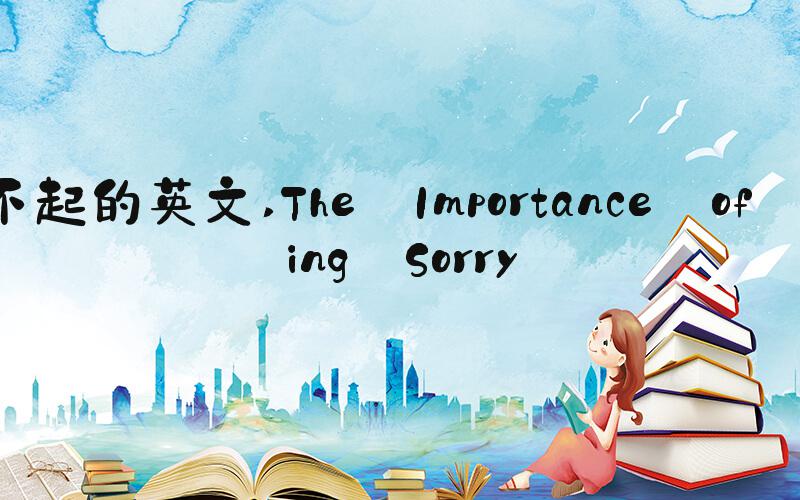
Sorry
Sorry is a difficult word to say. It can be a truly humbling experience when we find ourselves in a position where we need to say sorry. However, sometimes it is necessary for our well-being and our relationships with others. In this article, we will explore the importance of saying sorry, how to apologize effectively, and how to deal with the aftermath of an apology.
The Importance of Saying Sorry
Saying sorry is an essential element of our social fabric. When we make mistakes, we hurt others, intentionally or unintentionally. Apologizing is a powerful act of empathy, kindness, and respect. It shows that we value the other person's feelings and that we take responsibility for our actions. Moreover, saying sorry can help us resolve conflicts, rebuild trust, and strengthen our relationships with others.
How to Apologize Effectively
Apologizing is not just a matter of saying sorry. A sincere apology involves three elements: admitting fault, expressing remorse, and making amends. First, it is essential to acknowledge our mistakes without making excuses or blaming others. We need to take full responsibility for our actions and their consequences. Second, we need to express genuine remorse for the harm caused. We need to show that we understand the other person's feelings and that we regret causing them pain. Third, we need to make amends by offering to do something to make things right. We need to ask for forgiveness and be willing to make changes to prevent similar mistakes from happening in the future.
Dealing with the Aftermath of an Apology
After apologizing, it is essential to give the other person time and space to process their feelings. They may or may not forgive us, and we need to respect their decision. However, we need to be patient and persistent in our efforts to make amends. We need to demonstrate that we are committed to changing and improving ourselves. Moreover, we need to learn from our mistakes and avoid repeating them in the future.
In conclusion, saying sorry is a powerful and necessary act of humility, empathy, and respect. It can help us heal our relationships with others and make us better people. However, it is not an easy thing to do. It requires courage, honesty, and humility. It also requires us to be willing to learn from our mistakes and to make amends. Let us embrace the power of saying sorry and make it a part of our daily lives.

